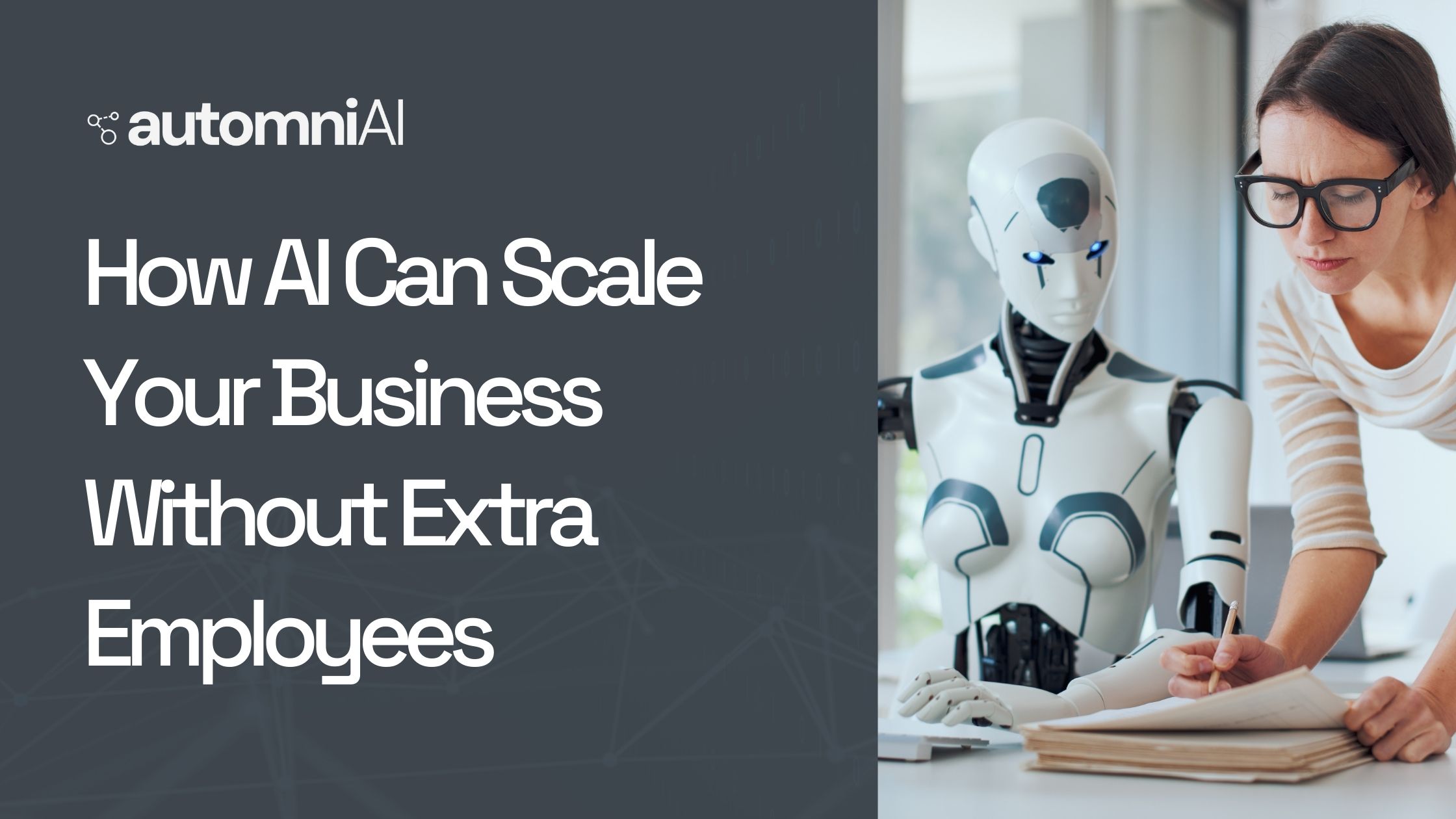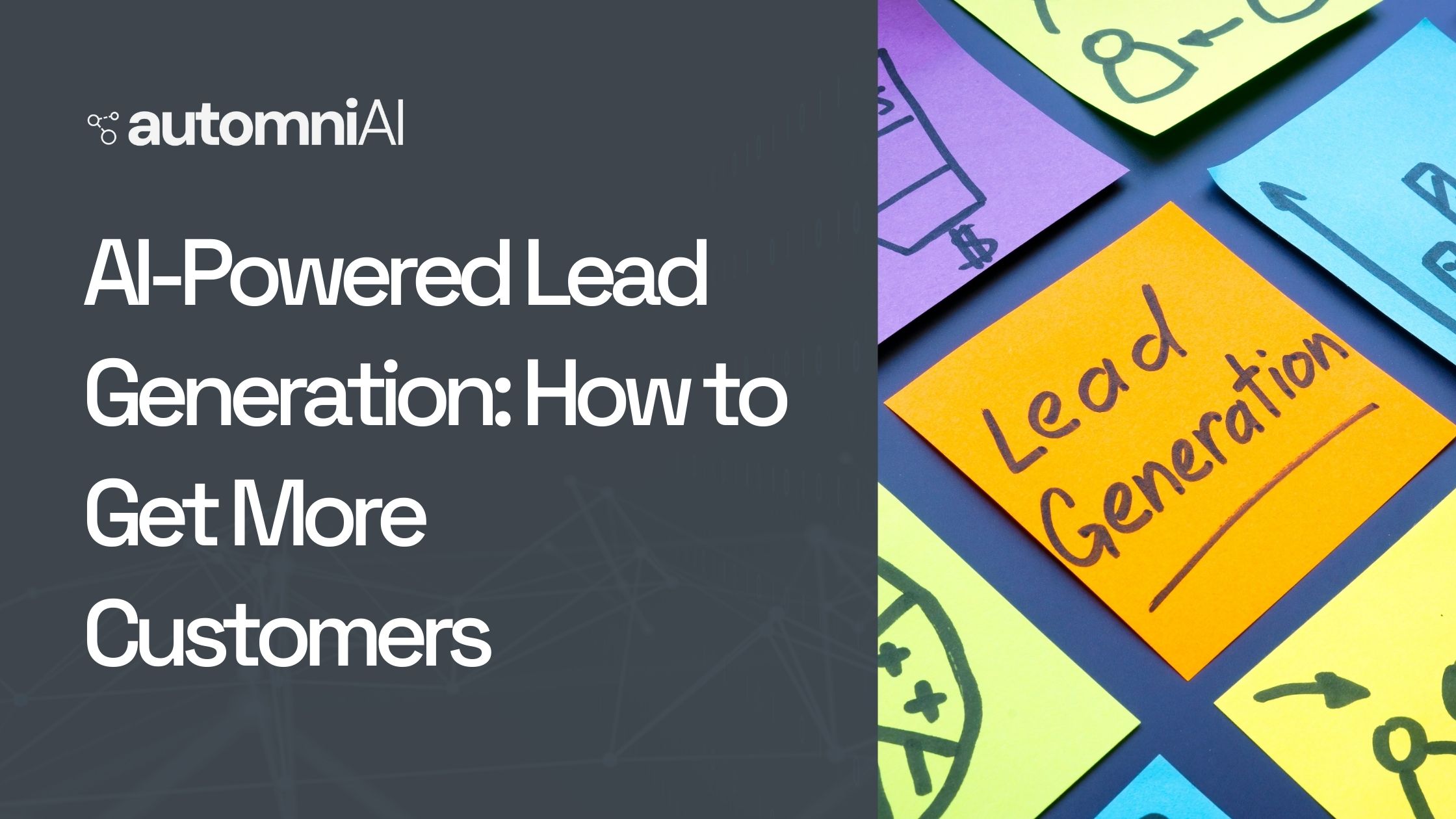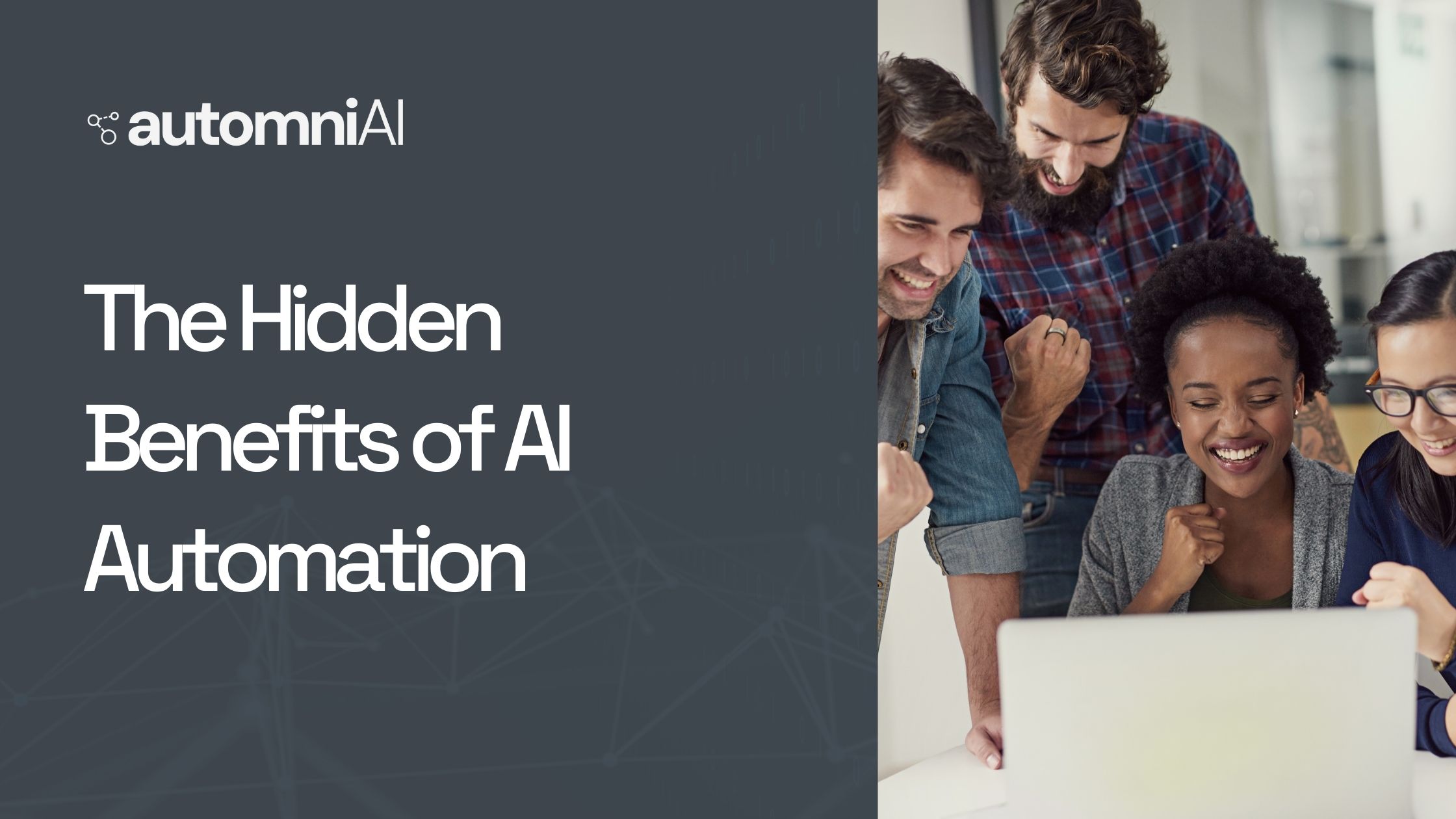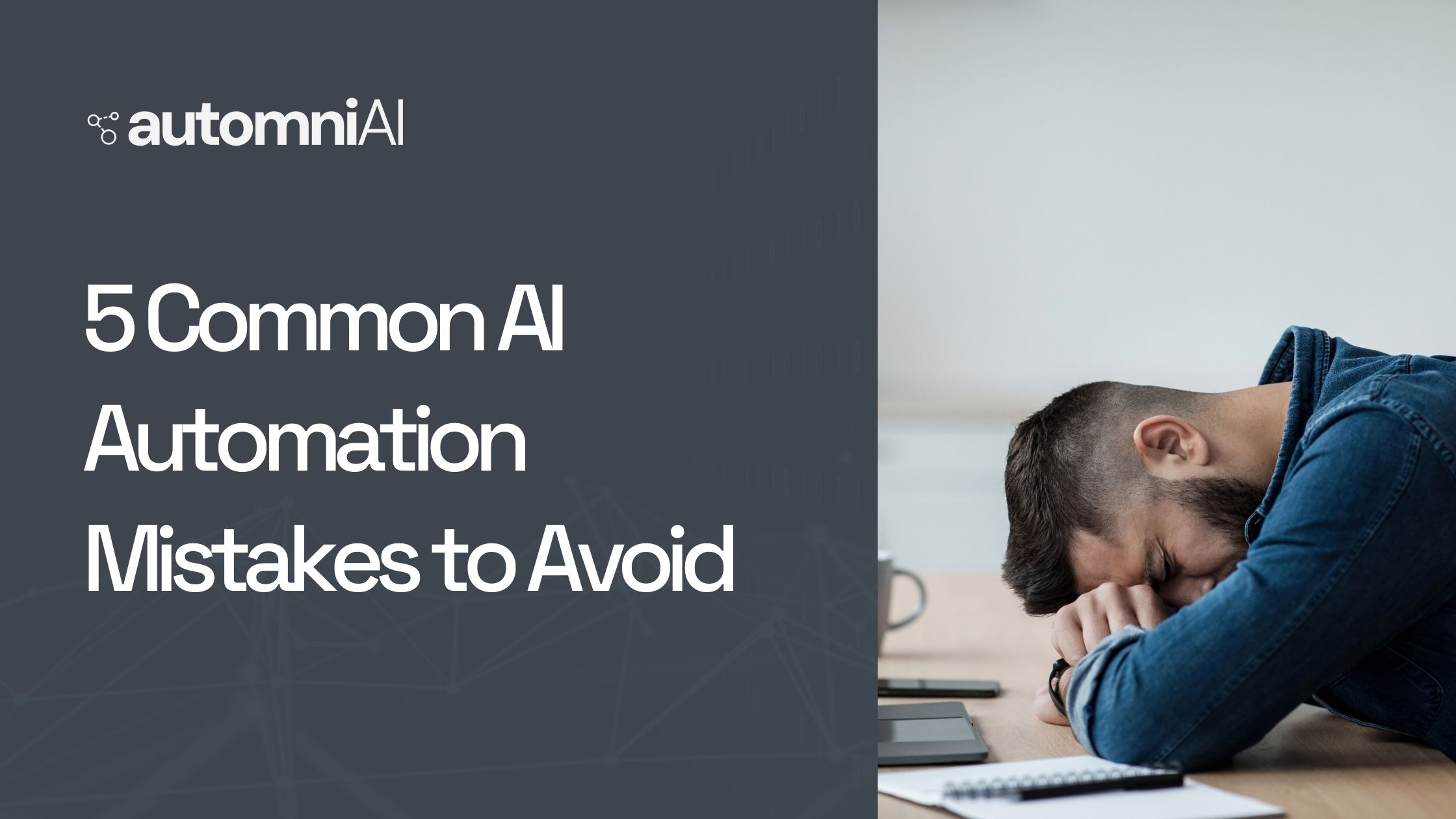In today’s digital world, businesses need more than just traditional marketing to attract and retain…

How AI Can Scale Your Business Without Extra Employees
The idea of scaling a business usually comes with the assumption that you need to hire more employees. But what if you could achieve growth, efficiency, and profitability without expanding your workforce? This is where Artificial Intelligence (AI) comes in.
AI is revolutionizing industries by automating repetitive tasks, enhancing customer service, optimizing marketing efforts, and improving decision-making. Businesses of all sizes can now leverage AI to scale faster while keeping costs low. In this article, we’ll explore how AI can help your business grow without hiring additional staff.
Understanding AI in Business
What is AI and How Does It Work?
Artificial Intelligence (AI) refers to computer systems that can perform tasks that typically require human intelligence. These tasks include learning from data, recognizing patterns, making decisions, and even understanding natural language.
Some of the core AI technologies businesses use include:
- Machine Learning (ML) – AI models that learn from data and improve over time
- Natural Language Processing (NLP) – Enables AI to understand and respond to human language (e.g., chatbots)
- Automation – AI-driven software that handles repetitive business processes without human intervention
Businesses worldwide are integrating AI into their operations to improve efficiency, reduce costs, and drive innovation.
Benefits of AI for Business Growth
AI isn’t just for tech giants—it’s becoming an essential tool for small and medium-sized businesses too. Here are some key ways AI contributes to business growth:
1. Reducing Operational Costs
AI eliminates the need for manual labor in repetitive tasks like data entry, customer support, and financial management. This helps companies cut labor costs while improving efficiency.
2. Enhancing Decision-Making
AI-driven analytics can process vast amounts of data quickly, providing businesses with real-time insights. This allows for better decision-making in areas like marketing, inventory management, and sales forecasting.
3. Improving Customer Experience
AI chatbots, personalized recommendations, and automated responses help businesses enhance customer service and engagement, leading to higher customer satisfaction and retention.
Automating Repetitive Tasks with AI
One of the biggest advantages of AI is its ability to automate mundane and time-consuming tasks.
AI-Powered Chatbots and Virtual Assistants
AI chatbots provide instant responses to customer queries, reducing wait times and improving customer satisfaction. Virtual assistants like Siri, Alexa, and Google Assistant also help businesses automate tasks.
Automated Data Entry and Document Processing
AI can process large volumes of data without human intervention. This is particularly useful in accounting, HR, and administrative tasks.
AI in Financial Automation
AI tools can handle:
- Billing and invoicing – Automating financial transactions
- Payroll processing – Reducing manual errors in salary distribution
- Expense tracking – Automatically categorizing and analyzing expenses
Enhancing Customer Support with AI
Customers expect quick and accurate responses. AI enhances customer support by:
1. 24/7 AI Chatbots for Instant Responses
AI-powered chatbots answer customer queries instantly, reducing the need for human agents. This improves response times and customer satisfaction.
2. Personalized Customer Interactions
AI analyzes customer preferences and past interactions to deliver personalized responses, recommendations, and offers.
3. AI-Driven CRM Systems
AI-powered CRM (Customer Relationship Management) systems help businesses track customer interactions, predict behaviors, and automate follow-ups.
AI in Marketing and Sales
Marketing and sales teams can leverage AI to improve targeting and increase conversions.
AI for Targeted Advertising
AI analyzes customer data to create highly targeted ads, ensuring businesses reach the right audience.
Lead Generation and Conversion Optimization
AI tools can identify potential customers, qualify leads, and automate follow-ups to convert them into paying customers.
AI-Powered Content Creation
AI-driven platforms like Jasper and Copy.ai generate marketing content, saving businesses time and effort.
AI for Data Analytics and Business Intelligence
Data is the backbone of any successful business, and AI can help process, analyze, and extract valuable insights from large datasets in ways that human analysts cannot.
1. Predictive Analytics for Better Decision-Making
AI-powered predictive analytics can forecast market trends, customer behavior, and sales patterns based on historical data. Businesses can make data-driven decisions and stay ahead of competitors.
2. AI in Market Trend Analysis
By analyzing customer preferences, industry trends, and competitor activities, AI helps businesses adjust their strategies in real time. This enables companies to optimize marketing campaigns and product launches.
3. AI-Powered Reporting and Dashboards
AI-driven dashboards provide real-time insights into business performance, making it easier for managers to track progress and identify growth opportunities. Tools like Tableau and Power BI leverage AI to visualize complex data in a user-friendly format.
AI in Human Resources and Employee Management
AI is transforming HR processes by streamlining recruitment, employee engagement, and performance management.
1. AI-Driven Recruitment and Hiring Processes
AI-powered applicant tracking systems (ATS) can screen resumes, shortlist candidates, and even conduct initial interviews using chatbots. This saves HR teams time and ensures a more efficient hiring process.
2. Employee Performance Analysis and Engagement
AI tools analyze employee performance metrics, provide feedback, and even suggest personalized training programs to enhance productivity. AI-driven engagement platforms can predict employee burnout and suggest proactive measures.
3. AI in Training and Development
AI-powered learning platforms personalize training modules based on employees’ strengths and weaknesses, improving skill development and career growth.
AI and Supply Chain Optimization
AI is revolutionizing supply chain management by improving efficiency, reducing costs, and mitigating risks.
1. Demand Forecasting and Inventory Management
AI can predict demand trends and automatically adjust inventory levels, preventing overstocking or shortages. This ensures businesses meet customer demands efficiently.
2. AI in Logistics and Transportation
AI optimizes delivery routes, reducing fuel costs and improving delivery speed. AI-powered fleet management systems enhance vehicle maintenance and reduce operational downtime.
3. Reducing Supply Chain Risks with AI
AI can identify potential disruptions in the supply chain and suggest alternative suppliers or logistics solutions, minimizing delays and financial losses.
AI in Cybersecurity and Fraud Prevention
As businesses become more digital, cybersecurity threats are on the rise. AI plays a crucial role in identifying and preventing cyber threats.
1. AI for Threat Detection and Risk Mitigation
AI-powered security systems detect anomalies and potential threats in real time, allowing businesses to respond quickly to cyberattacks.
2. Fraud Detection in Transactions
AI analyzes financial transactions to identify suspicious activities, helping businesses prevent fraud and financial losses. Banks and e-commerce platforms use AI to flag unauthorized transactions.
3. Enhancing Data Privacy with AI
AI-driven encryption and authentication technologies improve data security, ensuring customer and business information remains protected.
Scaling E-commerce with AI
AI is transforming the e-commerce industry by enhancing user experiences, automating processes, and increasing sales.
1. AI in Personalized Product Recommendations
AI analyzes customer browsing and purchase history to provide personalized product recommendations, increasing conversion rates and customer satisfaction.
2. AI for Inventory Management and Dynamic Pricing
AI predicts stock levels and adjusts pricing based on demand, competitor prices, and customer behavior, maximizing profits.
3. AI-Powered Customer Behavior Analysis
AI tools track customer interactions and predict buying patterns, enabling businesses to create targeted marketing strategies.
AI for Remote Work and Virtual Collaboration
With the rise of remote work, AI-driven tools are essential for seamless virtual collaboration and productivity.
1. AI Tools for Virtual Meetings and Project Management
AI-powered platforms like Zoom, Microsoft Teams, and Slack enhance virtual communication, automate meeting scheduling, and provide real-time transcription services.
2. AI-Driven Automation in Workflow Management
AI automates routine tasks, such as scheduling, document approval, and task assignments, improving productivity in remote teams.
3. Enhancing Team Collaboration with AI
AI-powered collaboration tools provide insights on team performance, suggest workflow improvements, and facilitate better coordination across departments.
Challenges of Implementing AI in Business
While AI offers many benefits, businesses face challenges when integrating AI into their operations.
1. High Initial Investment and Integration Costs
AI implementation requires significant investment in technology, training, and infrastructure. Small businesses may struggle with budget constraints.
2. Data Privacy Concerns and Ethical Challenges
AI relies on vast amounts of data, raising concerns about data security and ethical issues related to AI decision-making.
3. Need for AI Expertise and Training
Many businesses lack AI expertise, making it difficult to implement and manage AI-powered solutions effectively.
Future of AI in Business Scaling
AI is continuously evolving, and businesses must stay updated on emerging AI trends to remain competitive.
1. Emerging AI Trends
- AI-powered automation in customer service, finance, and HR
- Expansion of AI in robotics and manufacturing
- Advanced AI-driven analytics for business intelligence
2. How AI Will Continue to Reshape Industries
AI is expected to further transform industries like healthcare, finance, and retail by improving efficiency, personalization, and decision-making.
3. Preparing for an AI-Driven Future
Businesses should invest in AI training, stay updated on AI advancements, and adopt AI solutions that align with their long-term goals.
Conclusion
AI is a game-changer for businesses looking to scale without hiring additional employees. From automating repetitive tasks to enhancing customer support, optimizing supply chains, and improving cybersecurity, AI offers endless possibilities.
By leveraging AI effectively, businesses can boost productivity, reduce costs, and stay competitive in the digital era. As AI continues to evolve, integrating it into business operations will be essential for long-term growth and success.
FAQs
1. How can small businesses afford AI?
Many affordable AI solutions, such as cloud-based AI tools and AI-as-a-service platforms, allow small businesses to integrate AI without high costs.
2. Will AI replace human jobs in business?
AI automates repetitive tasks, but it also creates new job opportunities by enhancing productivity and allowing employees to focus on higher-value tasks.
3. How secure is AI in handling business data?
AI-powered security systems offer advanced data protection, but businesses should implement strict security protocols to prevent data breaches.
4. What industries benefit the most from AI?
AI benefits industries such as e-commerce, finance, healthcare, manufacturing, and customer service by improving efficiency and decision-making.
5. How to start implementing AI in a business?
Businesses can start small by adopting AI-powered tools for automation, customer service, and data analytics, gradually expanding AI integration based on needs and budget.




Comments (0)